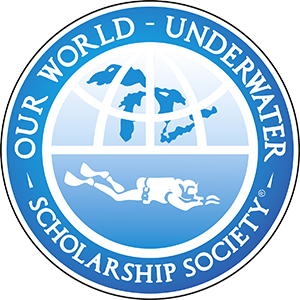After two full days at sea heading east from the Falkland Islands, we arrived off the north east coast of South Georgia. Our first attempt at a landing at Right Whale Bay was abruptly interrupted by ‘Katabatic’ winds, gusting strongly down the post glacial valley forcing our scout party to retreat back to the safety of the National Geographic Explorer.
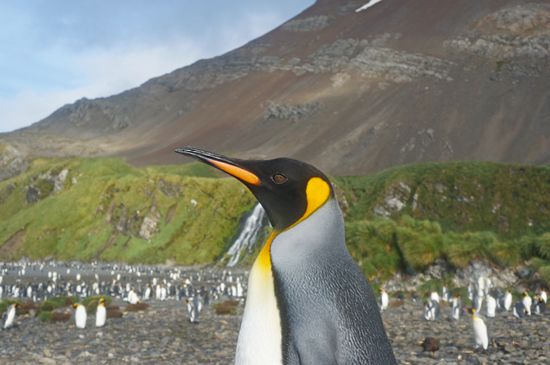
By afternoon the sun was peeking through the haunted skyline and the decision was made by our expedition leader Lisa, to make a second attempt at a landing. I took my first steps ashore, then, just like the several thousand king penguins surrounding me, I stood completely still. I looked around, eyes wide with astonishment. The natural beauty of South Georgia overwhelmed me in this moment, one of two emotional pinnacles of an expedition I am so grateful to have been part of.
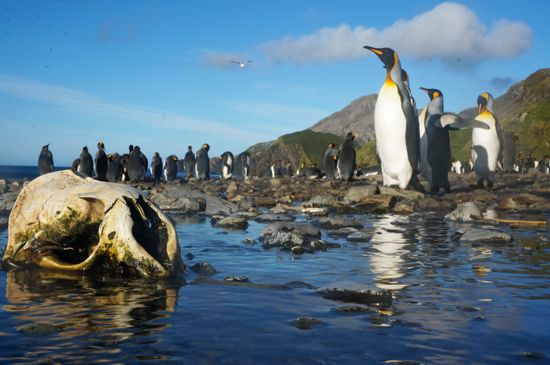
After several days of exploring the island of South Georgia, I sat overlooking a site of strong historical significance at King Edward cove. Not only is this sheltered bay the final resting place of the famous Antarctic explorer, Sir Ernest Shackleton, but also the site of what once was Antarctica’s first whaling station… Grytviken.
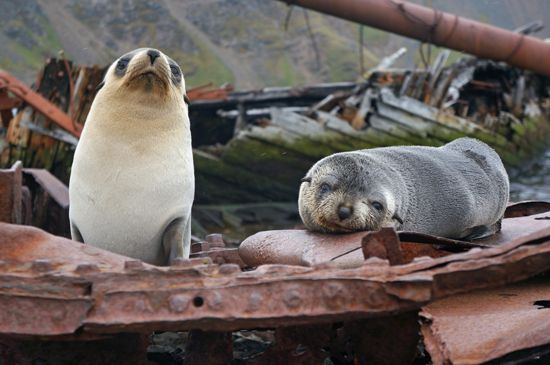
As sat overlooking the rusted remains of Grytviken, I was once again overwhelmed. However this was an emotional polar opposite to that first afternoon at Right Whale Bay. The abandoned site of what once was the proud and profitable forerunner of a huge Antarcticac whaling industry, remains today as a rusting reminder of environmental negligence and a poignant memorial demonstrating man’s environmental insensitivity of the past.
During the early 1900s, whales were abundant in South Georgia’s waters. Humpbacks were the first to be targeted until the technology was developed to target faster swimming Blue Whales. As the Blue whales declined, the next biggest species, Fin Whales were targeted, then as they declined, Sei whales and eventually as all species became scarce, even the much smaller Minke was taken, each species progressively less profitable.
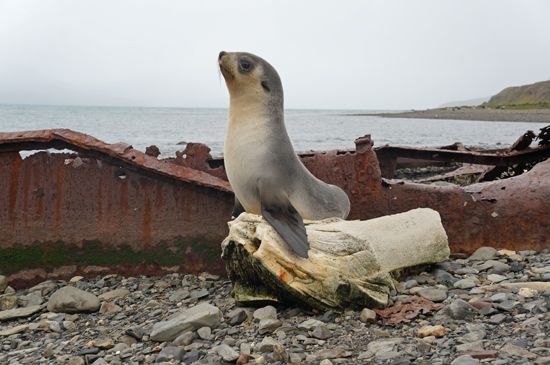
Whaling ended in South Georgia simply because whale stocks had become “fished out.” The result was the decimation of virtually all of the world’s whale species to the extent that even today, whales are rarely sighted in the local waters of South Georgia. My expedition was lucky enough to encounter 3 humpbacks and a blue/fin hybrid. These sightings are especially exciting since they have only just started to make an appearance in the last few seasons indicating some hope for future populations. However, as we continue to report over-exploitation of more and more of the world’s fisheries, I remain astonished as to how we seem to have never learnt. The rusted remains of Grytviken stand strongly in my mind as a bold example demonstrating that short term economic gain has long lasting consequences.
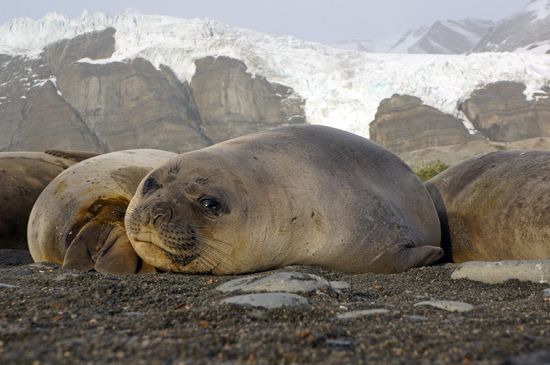
I want to send out my utmost appreciation to Lindblad Expeditions for having me on board and making it possible for me to be one of the few lucky enough to experience such a remote and beautiful location. I also want to thank all of the professional and knowledgeable staff on board for making the expedition such a valuable and memorable experience. I will finish off with a more light hearted clip, a short taste of my snorkeling experience in South Georgia.
